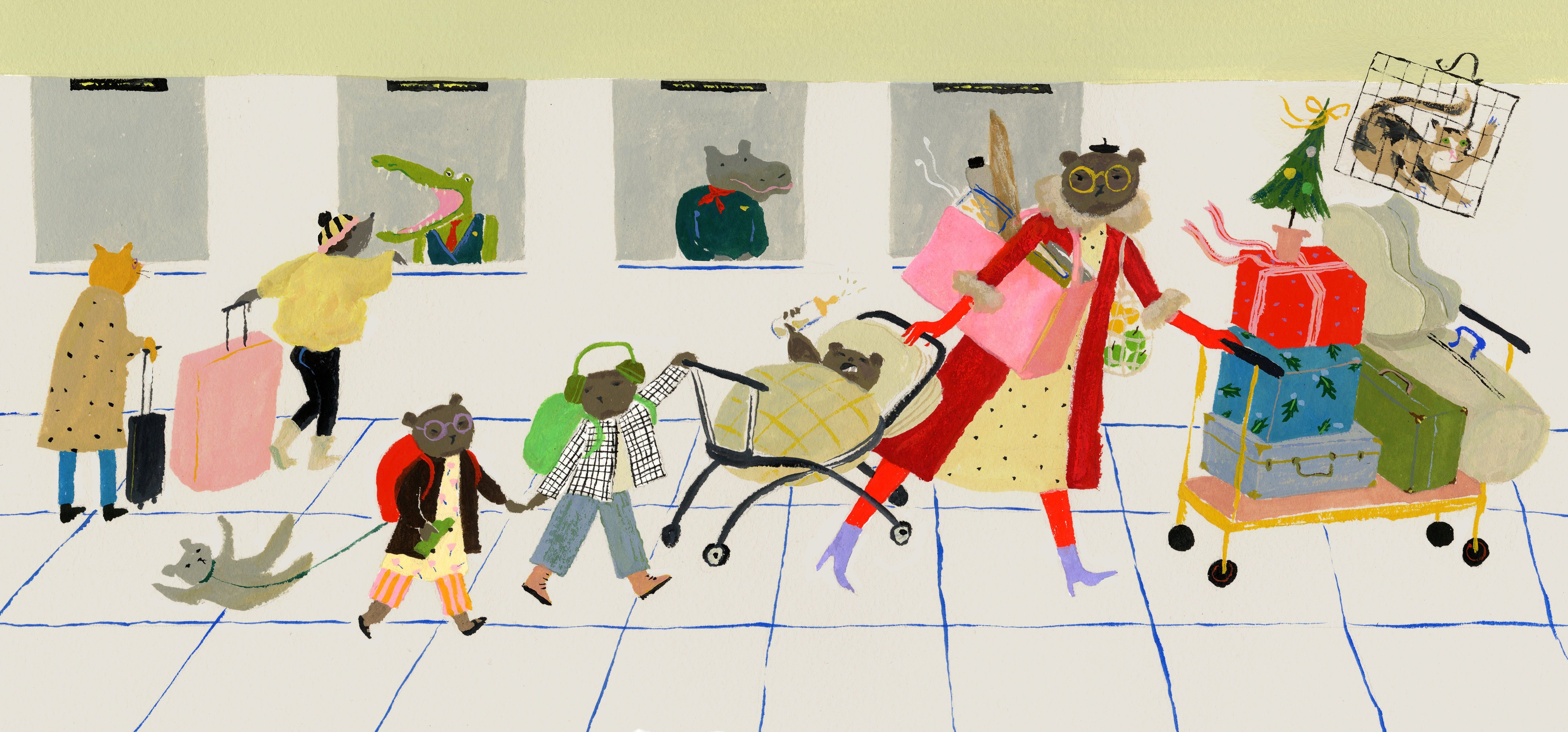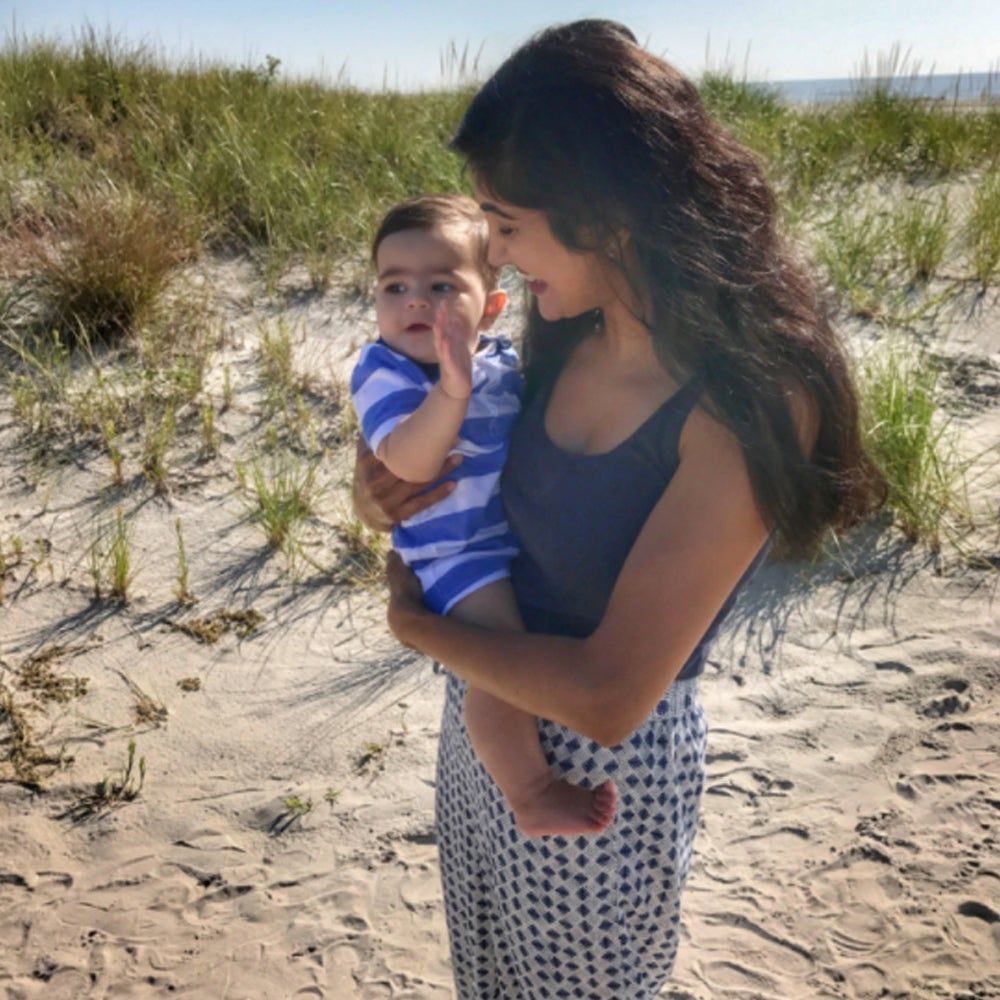
Ask a Pediatrician
Tips for Traveling With Kids
Traveling is full of joy, excitement, and, for parents everywhere, lots of planning! If you're planning upcoming travel, thinking about your child's health and well-being can feel overwhelming. Here are some tips to help.
- Written By
- Dr. Anjuli Gans
- Illustration
- Emily Isabella
What to Pack
Knowing some important health information will help you feel prepared for any trip.
First Aid Kit. Having a travel first aid kit will help you to feel calm & confident with any health situation that arises. My First Aid Checklists has an easy, printable travel first aid checklist so you can be prepared.
Clothes and Extras. Extra diapers or pull ups, wipes, diaper cream, pacifier, 1-2 extra sets of clothes, small muslin blanket or changing pad, and small trash bags.
Feeding. Breast milk or formula kept in a cooling bag (check with TAA for details), your pump supplies, and small snacks.
Driving
Check Your Car Seat Before You Go. Double-check your car seat instructions to make sure you've properly installed the seat before leaving on a long trip.
Timing is Everything. Timing the trip to work with your children’s schedules can make a longer trip easier for everyone. If you can, think about traveling during their nap times or overnight.
Take Breaks. It is essential to take regular breaks out of the car every few hours. Babies should not stay in a car seat for lon ger than 2 hours at a time, so try to make stops where you can take them out to feed them, change diapers, and let them move around a bit.
Stay Close. Consider sitting in the backseat if it’s possible with your car setup. This can help so much to ease the ride–to help with regular snacks, activities, playing together, and monitoring your kids.
Motion Sickness. So many children experience car sickness during car rides. Here are some tips to help.
• Keep things cool. Keeping the window down or air conditioning on for brief periods can ease symptoms. You can also use a cool washcloth or cool pad on your child’s forehead for comfort.
• Have a small snack before the ride. Foods with ginger (i.e. gingerale, ginger cookies, ginger lollipops, etc.) have anti-nausea properties that can help a lot.
• In a pinch, place an alcohol swab under the nose (an old medical trick!) if your child is feeling nauseous.
• Change your child’s view. If you are able to do it safely (check car seat requirements for your child), have your child sit in the middle seat. Or you can have them focus on activities inside the car and avoid looking out the side window as much as possible.
• Screens. Some children feel more nauseous when looking at screens during a car ride - see what makes sense for your little one.
• You can talk with your pediatrician about medications or other options if your child is still having symptoms despite these tips.
Flying
Talk With Your Pediatrician. If you have a newborn, young infant, or child with other health conditions like premature infants, a chronic medical condition, colds, ear infections, talk with your pediatrician about what to consider before travel.
Safety During Your Flight. The AAP recommends that the safest way for your baby to fly is in a child safety restraint––an FAA-approved car seat or an approved airplane harness device. ry to find rows on the plane with more space (like the bulkhead) and seats closer to the window to avoid exposures to moving carts, overhead bin items, or hot drinks.
Dressing for the Plane. Dressing babies in layers will help a lot with the varying temperatures in a plane. Make sure to pack an extra set of clothes and plastic bags for soiled diapers or clothing. Try to change your baby’s diaper or pull up before boarding if possible.
Ear Pain. Takeoffs and landings can be uncomfortable for young children as changes in pressure affect their ears. Plan to have your baby breastfeed, take a bottle, or use a pacifier during these times to help with any pain. Older children can chew gum or suck on a lollipop. If your child has had a recent ear infection or cold, symptoms may be more pronounced - talk with your pediatrician before your trip.
One last note:
Traveling can feel stressful. Talk with your pediatrician about how you can keep your kids safe and healthy during travel and do what feels best for your and your family. There are a lot of things to think about, but focusing on simple habits and healthy practices will help your family to have a wonderful and safe holiday season.
Dr. Anjuli Gans

Anjuli Srivastava Gans, MD, is founder of Resilient Rascals and an attending physician at the Children’s Hospital of Philadelphia . As a leading expert on early childhood health + development, she hopes to bridge the gap between parents’ instincts and practical medical care that they can use at home. She lives in New Jersey with her husband and two children.